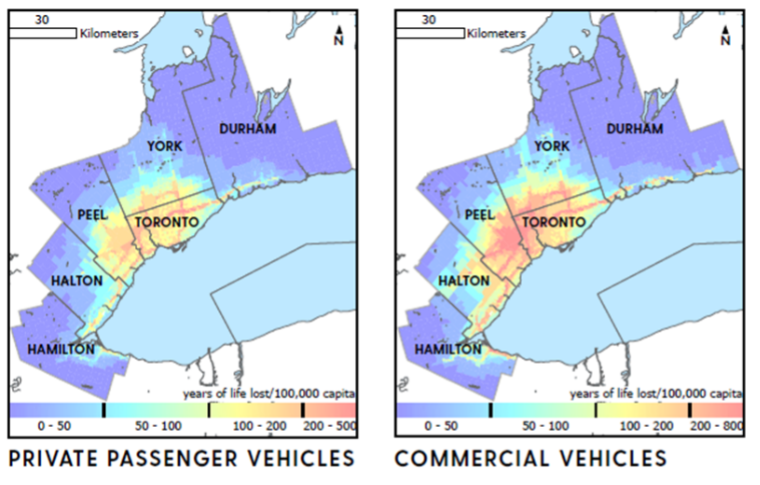CivMin Professor Matthew Roorda is leading the group of researchers from U of T, McMaster University and York University

Professor Matthew Roorda (CivMin) is leading an academic collaboration between 10 faculty researchers and more than 50 graduate students from the University of Toronto, McMaster University and York University. Together, the City Logistics for the Urban Economy (CLUE) is confronting the pressing challenge of rethinking urban freight logistics.
The rise of e-commerce and home delivery has brought convenience to consumers, but it has also exacerbated challenges in urban freight logistics. As the transportation and delivery industry continues to expand, freight emissions are growing rapidly, outpacing those of passenger vehicles.
With a commitment to sustainability and equity, the research group’s focus is to reshape the landscape of urban goods transportation, addressing four main areas: congestion, emissions, safety concerns and the equitable distribution of benefits and burdens.
CLUE began in 2020, and since then, 10 faculty researchers — along with 12 research sponsors, including federal, regional, non-governmental organization, and industry partners — have worked on more than 24 projects.
One research theme that the group is examining is the equity and environmental justice implications of the rise of e-commerce and home delivery.
“Questions around winners and losers in the transition from brick-and-mortar to delivery, as well as the distribution of emissions from delivery vehicles, are being explored,” says Roorda.
Through their various research projects, CLUE aims to quantify the influence on communities most impacted by freight logistics, particularly those living near highways and loading facilities.

Data collection and science also play a crucial role in CLUE’s research. The group is currently developing their Freight Data Warehouse, a repository for large data sets such as GPS traces of commercial vehicles, with the aim of enabling further research using this valuable data.
“The goal is to build visualization dashboards to provide insights into greenhouse gas emissions, traffic patterns and travel speeds, empowering policymakers, and the public to make informed decisions,” says Roorda.
Various pilot projects have been successful outcomes of CLUE’s research, such as Purolator’s bike delivery initiative and the off-peak delivery project.
“We have seen impact of our off-peak delivery pilot project on government policy changes, such as allowing night-time deliveries across Ontario” says Roorda.
To collect evidence of the impact of that change in policy, CLUE conducted community surveys after night-time deliveries were permitted to help assess the noise impact on residents and developed a freight transportation model to assess the greenhouse gas emissions impact.

CLUE also introduced a new truck driving simulator, where novice truck drivers can be trained to navigate extremely challenging urban areas safely, considering pedestrians and cyclists. The goal of this initiative is to enhance safety standards within the freight and logistics industry, another key research theme for the group.
“Everyone makes mistakes while driving, but when you’re driving a huge truck in the city, you need to drive perfectly or else you put people at risk. It’s a very challenging job,” says Roorda.
By proposing innovative solutions like new delivery models, curbside loading zone technology and lifting restrictions on late-night goods deliveries, CLUE seeks to make the goods movement network more efficient and less impactful on urban environments.
By Selah Katona
This story originally published by Engineering News